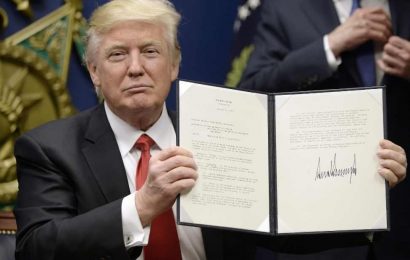US President Donald Trump announced he will delay tariff increase on Chinese goods after trade talk progress and wants to meet with President Xi to make a deal
US trade representative, Robert Lighthizer, met with Chinese Vice Premier Liu He in Washington over the weekend, and there were clear signs that the two sides would want to extend the set March 1 deadline in order to continue negotiations. The mainly discussed structural issues were nontariff barriers, intellectual property protection, forced technology transfers, cybertheft, agriculture and currency.
As a result of these negotiations, the president tweeted on Sunday that he has decided to delay US tariffs on $200bn of Chinese goods, and that he will meet with President XI Jinping in a summit at Mar-a-Lago resort in Florida in order to finalize the trade agreement. That would be the second summit after about two years ago President Donald Trump hosted President Xi at his Palm Beach estate shortly after taking office.
The announcement comes as the president prepares to meet with North Korean leader Kim Jong Un this week in Hanoi, Vietnam, a meeting aimed at denuclearization. Earlier on Sunday, the president also mentioned:
“President Xi of China has been very helpful in his support of my meeting with Kim Jong Un. The last thing China wants are large scale nuclear weapons right next door. Sanctions placed on the border by China and Russia have been very helpful. Great relations with Chairman Kim!”
The delay in increasing the tariffs was a sign of a breakthrough of the two sides since calling a 90-day truce in a months-long trade war last year. As a result, Asian share markets went considerably up after the announcement. However, a new deadline for tariff increase was not set, Margaret Yang, an analyst at Singapore-based CMC Markets, mentioned in a research note:
“The fact that Mr Trump didn’t highlight a new deadline for tariff increase is probably a signal that further tariffs are perhaps neither necessary nor a preferred option to optimise [the] US’s interest in the current situation.”

